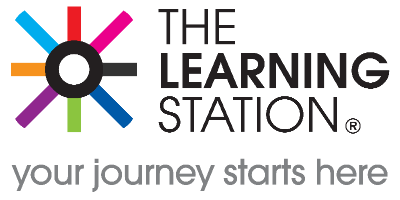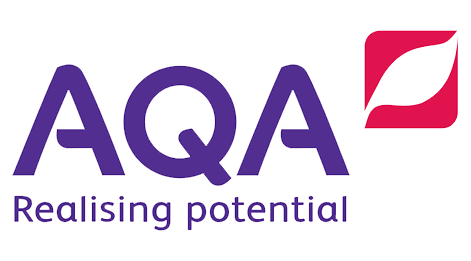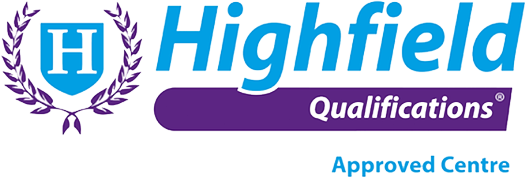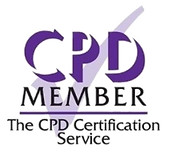If you wish to pay monthly, please click the button below to speak with a sales Rep
About this Course
Are you aiming to make a meaningful impact in the lives of children and young people within residential childcare settings? If so, the TQUK Level 3 Diploma for Residential Childcare (RQF) is the essential course to help you achieve your career goals.
Course Overview: Our Level 3 Residential Childcare course is designed for individuals currently working in or transitioning into the field of Residential Childcare. Completed as a distance learning course online for 9 to 12 months through our user-friendly online portal, this qualification equips you with the knowledge and skills required to succeed in children's homes, boarding schools, or similar environments.
Assessment Methods: Throughout this course, your dedicated assistant will assess you using various methods to ensure a well-rounded understanding and application of residential childcare practices. These assessment methods include written assignments, work product evidence, professional discussions, witness testimonies, and observation.
Regulatory Compliance: This qualification is a valuable asset to your career and a mandatory requirement for individuals working in children's homes, aligning with regulations introduced in April 2015. It replaces the previous Level 3 Diploma for the Children and Young People's Workforce (Social Care Pathway). It is a crucial certification for all new employees entering the field of Residential Childcare.
Course Content: The Level 3 Diploma in Residential Childcare covers essential knowledge and skills for supporting children and young people in residential care. This includes understanding child development, promoting well-being and resilience, fostering positive relationships, ensuring safety and protection, using effective communication strategies, managing positive behaviour, and achieving positive outcomes.
Ofsted Compliance: By completing this course, you'll not only enhance your skills and knowledge but also meet Ofsted requirements for working with children in various residential settings, including children's homes, semi-independent living, or residential homes for children.
Embark on your journey towards a rewarding career in residential childcare by enrolling in the TQUK Level 3 Diploma for Residential Childcare (RQF) today. Secure your future and positively impact the lives of the children and young people you serve.
Buying for a business ?
Bulk Discounts
Discounts available when purchasing 10 or more courses. Please ring our sales team on 0208 342 7210 to enquire.Pay by invoices
30 days payment term available when purchasing 5+ courses.Payments should be upfront unless they are regular monthly buyers
Management Suite
Track learner progress for free when you buy 10+ courses.Why take this course?
Career
On completion of this Level 3 Residential Childcare Course, candidates will be able to work as support worker in a residential childcare setting. You may be able to work in supported living accommodations, semi-independent living, children's residential homes and boarding schools.
Qualification
This Level 3 Diploma for Residential Childcare (RQF) is regulated by Ofqual, Accredited by Traning Qualifications UK and Accepted by major regulatory bodies such as Ofsted.
Eligibility
There are no formal entry requirements for this course, however, candidates should have a job secured as a Support worker in a childcare setting and should be at least 18 years of age to begin this Level 3 Residential Childcare Course.
Key Information
Course Duration
This Level 3 Diploma for Residential Childcare can be completed in just 9-12 months; however, candidates will have 12 months should they wish to pace themselves.
Course Location
The course is completed as a distance learning course based on our online learning portal. You can complete your online childcare course whenever and wherever you like, as long as you have an internet connection.
Course Support
Throughout your journey, your assessor will be available to support you on your course over the phone, by email and through our messing system. All our assessors have years of experience in social work and have a complete understanding of social care for children's services.
FAQ's
How it works
Step 1: Course Enrolment - you will need to complete a short enrolment and telephone induction to start
Step 2: Starting the course - your assessor will introduce themselves and issue you with your first assessment plan
Step 3: Submitting Work - when you have completed an assignment, you can upload it to your course portal for your assessor to mark your work and give you feedback. Feedback will be displayed on your portal and emailed to you for ease of reference
Step 4: Getting Help - when you need help, you can contact your assessor with questions any time as well as being able to get in touch with our customer support team between 9 am and 6 pm Mon - Fri.
Step 5: Completion - once you and your assessor are confident that you have met the criteria in each unit, your portfolio goes into the IQA stage which takes approximately 9-12 weeks. After this stage, we will be able to claim your certificate.
How do I log into my course?
Approximately 15 minutes after purchase, you will receive your login details by email, including a link and instructions to log into your course. You can also find your learning portal by clicking on the ‘student login’ button on our website, or by clicking here; lms.thelearningstation.co.uk
Where can I find the course units?
Mandatory Units
City and Guilds Level 3 Diploma for Residential Childcare.
Learners must achieve 62 credits from 17 mandatory units.
Unit 1 - Support the development of children and young people to achieve their learning potential
Unit 2 - Safeguarding and protection of children and young people in residential childcare
Unit 3 - Supporting children and young people who have experienced harm and abuse
Unit 4 - Support effective communication and information handling in residential childcare
Unit 5 - Support positive outcomes for children and young people in residential childcare
Unit 6 - Support positive relationships and attachments for children and young people in residential childcare
Unit 7 - Support the well-being and resilience of children and young people in residential childcare
Unit 8 - Support group living in residential childcare
Unit 9 - Support and promote shared risk management with children and young people in residential childcare
Unit 10 - Support children and young people in residential childcare to manage their health
Unit 11 - Assessment and planning with children and young people in residential childcare
Unit 12 - Support and promote the rights, diversity and equality of children and young people in residential childcare
Unit 13 - Support working in teams to benefit children and young people in residential childcare
Unit 14 - Professional development in residential childcare
Unit 15 - The care system and its impact on children and young people
Unit 16 - Residential childcare for children and young people with complex disabilities or Unit 1 - conditions
Unit 17 - Working with the families of children and young people in residential childcare
When will I have my induction?
Your induction will be arranged once you have finished all of the other enrolment modules, and will take place over the phone.
When will my work get marked?
You can expect any work submitted to be marked within just 14 days unless agreed otherwise with your assessor. Your work may not be marked within 14 days if you submitted more than 3 assignments in a month.
Are there any classes or learning materials?
As our qualifications are vocational and work-based courses, you are expected to conduct research and gain skills, knowledge and understanding from your working environment. Your assessor will provide you with assessment plans, which may include guidance and materials, as well as providing constructive feedback on the work that you complete.
When will I hear from my tutor/assessor?
Your assessor will provide you with assessment plans with work to complete, as well as their contact information. They will not reach out to you if you are not doing your work, you need to get in touch if you are having trouble with your assignments.
Your assessor should respond to any messages from you within just 3-working days, but it is usually sooner. If you have sent your assessor a message and you haven’t heard back from them, please let us know by emailing [email protected].
How will I be Assessed
This qualification requires an assessment of both competence and knowledge. Throughout your City and Guilds Level 3 Diploma for Residential Childcare course, you will be assessed through a variety of methods:
- Written assignments and coursework
- Having a manager or colleague complete a witness testimony of tasks completed in a workplace
- Direct observations of you carrying out work-related tasks
- Professional discussions over the phone
- Supplying us with work product evidence.
When will I get my certificate?
On completion of your course, there are steps that we must take to quality assure your qualification to then send to the awarding organisation.
- The Assessor must review your work in full before submitting it to our IQA, this usually takes around 2 weeks.
- The IQA will review any requests within 1-months, but this is usually sooner. If there are actions on your portfolio it will be sent to the assessor for them to complete, and then these steps will be repeated.
- Once the IQA has quality checked and approved your portfolio for external sampling by the awarding body, the office will submit the claim for your certificate within 5 working days.
- The awarding body will usually issue a certificate within 2-weeks from this point; however, they may request sampling of your work, in which case it can be up to one month.
- The usual duration is 1-2 months from completion.
See More
Why study with the Learning Station?
The Learning Station is fast becoming one of the UK’s top providers of online tuition with many students happily completing their chosen Online & Distance Learning courses. Whatever your reason is for enrolling on one of our courses, you can rest assured that you will be supported by a highly qualified, experienced and helpful assessor.
Benefits of the Learning Station
- We have thousands of successful learners
- All our qualifications are Fully Accredited and Nationally Recognised
- Our courses are specifically designed to ensure fast progression
- Simple to use e-learning and distance learning courses
- Easy online payment options
- Experienced & Responsive Online Tutors/Assessors
- On-Site Internal Quality Assurance & Moderator
- Technical Support 09:30 – 17:00 Mon-Fri

Our Partners
Need Some More Info ?
Fill out the form and we'll get straight back to you with help.



 Student Login
Student Login My Account
My Account










